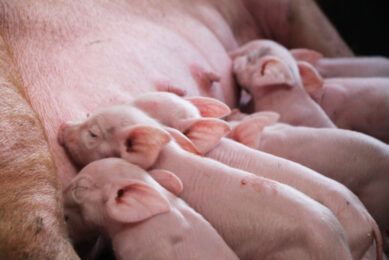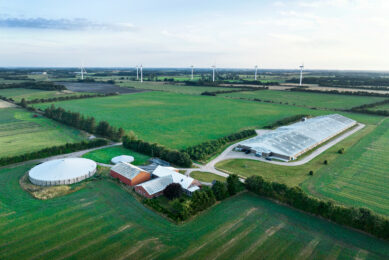Pigs with built-in defence against diarrhoea
Scientists at Aarhus University are investigating whether genetic resistance to E. coli infections is a sustainable approach to fight diarrhoea in pig production.
If all pigs could avoid the diarrhoea caused by E. coli infections, life would be a lot easier for millions of pigs and for thousands of farmers. Whether this is just wishful thinking or can become reality in the pig production of the future is something that scientists from Aarhus University and the University of Southern Denmark are looking into in a new project.
“Diarrhoea caused by E. coli is very costly in Danish pig production. If pigs with an inbred resistance to E. coli could be selected for breeding this would have a large impact on the control of diarrhoea in young pigs,” says senior scientist Emøke Bendixen from Aarhus University, who is the leader of the new project.
The resistance to E. coli is caused by a mutation on the FUT1 gene, but there has been no strategy to include this mutation in the breeding programme. The crucial issue before you can start this is to look at whether the resistance to E. coli could have other significant biological side-effects on the animals.
This is what the new project will examine. The scientists will compare the pigs that carry the FUT1 mutation with pigs that do not carry the mutation for a number of different parameters. They will, for example, examine how the FUT1 gene affects the colonisation of the intestines with beneficial microbiota, as this colonisation is crucial both for the health of the gut and for the pig’s health generally.
The composition of the gut flora will be mapped for each pig in the experiment using modern technology such as genomics and proteomics. The scientists will also examine how the proteins that have an important role to play in the attachment of pathogenic and beneficial organisms to the intestinal walls are affected by the mutation on the FUT1 gene.
“The knowledge that we gain is important for us to assess the advantages and drawbacks of genetic selection for the FUT1 mutation in pigs and will in the longer term help reduce diarrhoea caused by E. coli in pig production,” says Emøke Bendixen.
The additional knowledge about the structure and function of specific receptor molecules that the scientists will obtain can be used to develop new preventive and therapeutic medicines for E. coli infections in both animals and humans.
(Text: Janne Hansen)
For further information: Senior scientist Emøke Bendixen, Department of Animal Science, e-mail: emoke.bendixen@agrsci.dk, telephone: +45 8715 8001.
Source: Aarhus University











